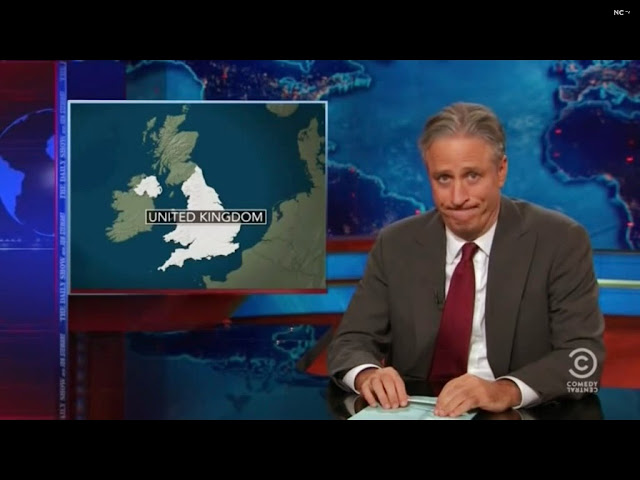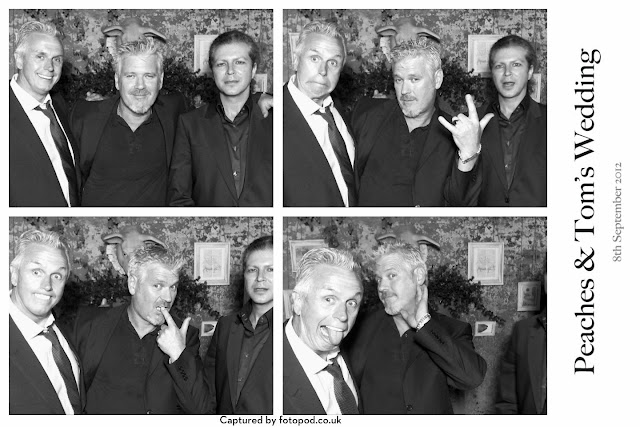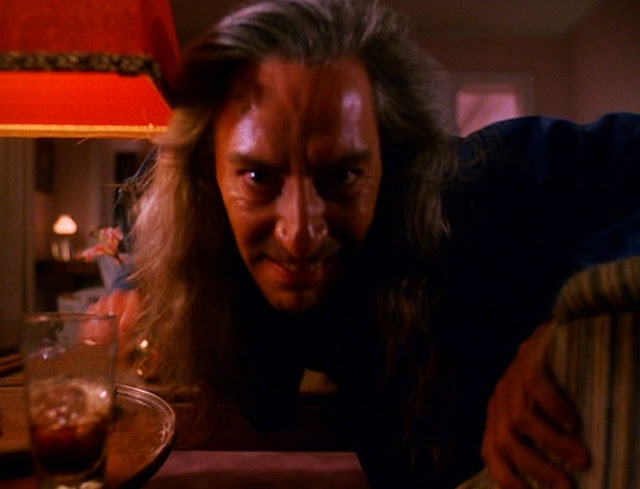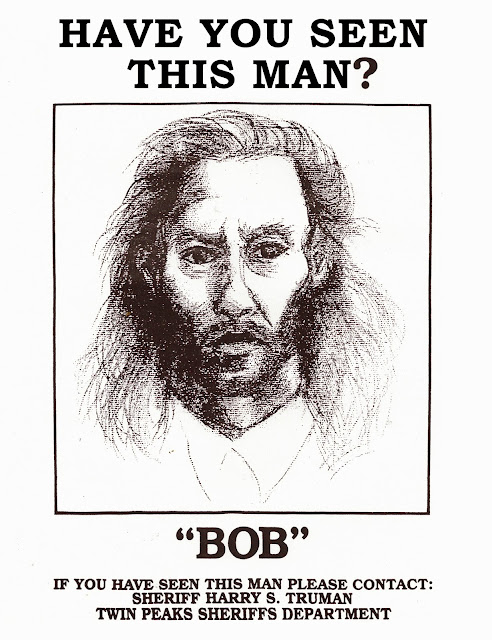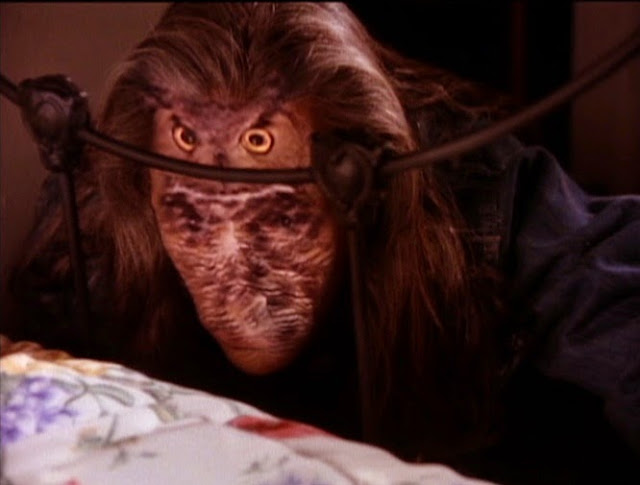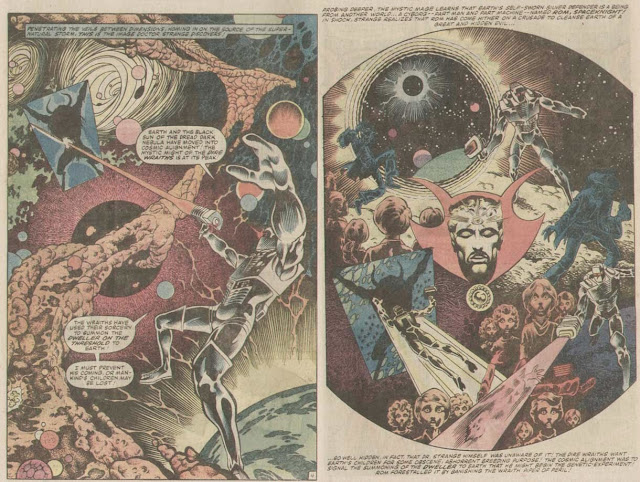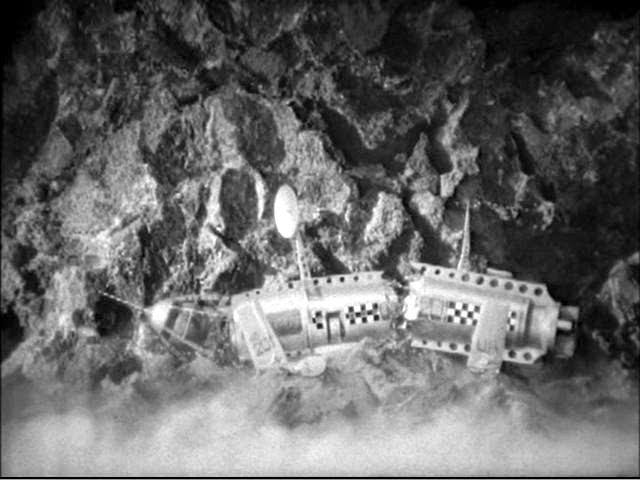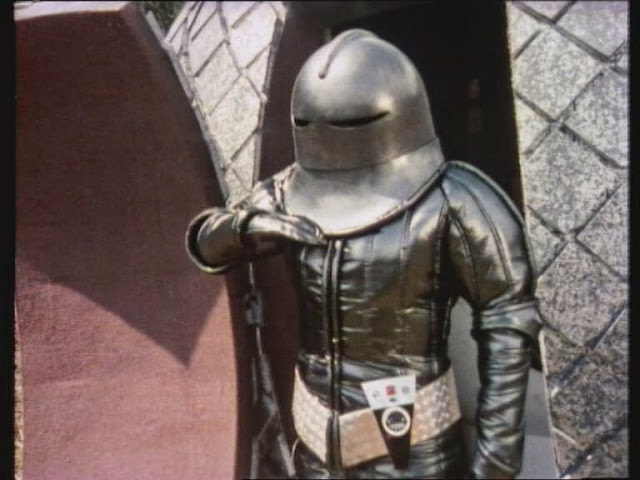Wednesday 17 September 2014
Hollywood Accredits the Memes - Serial Killers and The FBI in the 1990s
Monday 15 September 2014
War Amongst the Whites : The Zionist / WASP split of 1991
I'd like us still to be the undisputed leader of the world," George Bush told me when I had occasion to ask him recently where he wanted the country to be after a second Bush Administration. Bush credited Ronald Reagan with establishing a "very solid foundation, strong defense—keep our sights set on the demise of the Soviet Union." But he credited himself with confirming America's world leadership through decisive action. "Both Panama and the liberation of Kuwait helped, because I think there was a perception," a "kind of an aftermath of Vietnam, that the U.S. wouldn't fight, wouldn't go all out." We were speaking in the Oval Office last spring. Bush focused on the Gulf War. "I think Saddam Hussein had that perception. One, I think he thought we wouldn't go to battle and really go all out to do him in. Secondly; he thought that if we did, he might have a way of winning, at least winning like Nasser did," by "emerging as the hero of the Arab world." Bush said, "He was wrong on both counts." Then he gave a typically low-key Bush wrap-up. "Under my presidency I think most would concede that good things have happened."
Wanting to probe one of the good things that had happened, I took up not Desert Storm, which may still be unfinished business, but the collapse of Soviet communism, and asked if the President thought in retrospect that he had been too uncritical of Gorbachev.
He denied it. "I know there's some current kind of conventional wisdom that we stayed with Gorbachev too long. I would say the transition has been peaceful—not without some bumps in the road, but the transition has been peaceful. And the coup failed. And I think that we handled it about right."
So, I continued, it had been correct to say, as late as three weeks before the coup, that glasnost and perestroika pointed toward "democracy and economic liberty," which is what Bush had said in his speech in Kiev.
"Look at the alternative," Bush said now. "Look at the people who were trying to overthrow" Gorbachev. People, I pointed out, that Gorbachev himself had appointed. "He didn't appoint them to be coup plotters," Bush said, not to be budged from his basic judgment: the transition was peaceful, the coup failed, therefore what we did must have been right. Post hoc, ergo propter hoc.
When Bush talks about foreign policy, he has his examples at hand, and he can present them in a nutshell or tease out their details, as he likes. When surveying domestic issues, Bush tends to cruise at low altitude over a blur of programs, without elaboration, sometimes giving them only numbers, like Chinese slogans, rather than names: "the five objectives we have in terms of reforms . . . our six educational goals. . ." During my interview he alighted on only three issues. In four years he expected to be "well on the way to accomplishing victory" in the war on drugs. He mentioned "encouraging statistics" on the number of teenage users of cocaine, though the number of addicts has "not improved at all," he admitted. "So we've still got a big job." His second issue was the Administration's efforts to contain the litigation explosion—"not a frivolous subject, because when you look at health-care costs," litigation "costs us from twenty billion to forty billion a year." His goal was to "put some caps on these liabilities." Last was regulation, a problem he had partly caused. "We've had two major pieces of legislation that flooded the system with some regulation—the ADA [Americans With Disabilities Act] and the Clean Air Act"—both of which he had supported. "But we're trying very hard to see that we get that under control." In fairness, I should say that we spoke just before the Los Angeles riots. Since then Bush has discovered Jack Kemp's "urban agenda."
When I asked him about multicultural education, an issue not yet attached to any federal programs or national political controversy, he responded with a platitude—"I'd like to see us brought together and not divided"—and then, as he often does, he cited experience. "We have three multicultural grandkids"—the children of Jeb and Columba Bush. "Their mother is Mexican and now an American citizen, proudly. They feel, because of her, affinity for the Mexican culture . . . and it's a wonderful thing. But it is not put forward in their house in some guilt way . . . meaning, the world owes us something because we have a different culture."
Bush also turned to family experience when I questioned him about his position on abortion. His steadfastness on the abortion issue is surprising. Hard-core right-to-life beliefs are not common among those of his station in life. "Friends and others violently disagree with me. . . . I hear from more of my friends who disagree. Whether that means that those who agree just are not apt to be checking in, I don't know." Bush had more-liberal views in the 1980 campaign, when he supported federal funding to abort pregnancies that were caused by rape or incest or that endangered the mother's life. But he has held so tenaciously to his new position that the National Right to Life Committee endorsed him in 1988, and is one of the few conservative groups that preferred him to Patrick Buchanan. Bush cited the number of abortions as one of the reasons for his stand; he did not know the figure—1.5 million a year—but called it "extraordinarily high." The other reason was "quite personal": "our adopted grandchildren who give us so much joy." These are the children of Marvin and Margaret Bush. Had their birth mothers exercised the right to choose differently, Bush reasons, they would not be alive.
Bush showed no such steadfastness on taxes. The 1990 budget agreement is the act he most regrets, "because it's cost me a lot of credibility." Indeed it has. The former White House speech writer Peggy Noonan, who wrote the 1988 convention acceptance speech in which Bush pledged "no new taxes," explained in her 1990 memoir why she had preceded that promise with the even more memorable phrase "Read my lips": "It's definite. It's not subject to misinterpretation. It means, I mean this." Noonan may have meant it. But two years later, when Bush turned out to have meant something else, he suffered the first significant sag in his approval ratings and the first signs of rebellion on the right. Reagan, Bush wanted me to know, had raised taxes several times, and yet the opprobrium of pledge-breaking "didn't seem to stick" to him. Bush thought that had been partly because the recovery from Reagan's recession in 1982 was vigorous. "With us, we've had this long, slow, recessionary economy. . . . It's been tough. Tough period."
But was the economy the only reason people had become discontented with him, or discontented in general? Toward the end of the interview I asked him if he thought Americans were suffering from a lost sense of commonality, a feeling that we are not in fact all in the same boat. This diagnosis is usually offered by liberals who are bemoaning the class inequities of the Reagan-Bush years, but conservatives make a similar analysis when they criticize cultural secessionism such as multiculturalism.
Bush didn't agree. "If that were true, why after Desert Storm would there have been this enormous coming together? Why would there have been this national pride unmatched since the end of World War Two? Why would that one victory, terrific victory, have pulled this country together in the way that it did, if there was this cancer that you've described? And it was together. And it was strong." So what happened to that feeling? "It was then eroded away by the economic doldrums."
Earlier I had tried another tack. When Bush ran for President in 1980 and 1988, he pointed proudly to his record of public service. Yet this time around he was being challenged by Pat Buchanan and Ross Perot, two people who thought the presidency was an entry-level position. Was the support attracted by such candidates, I asked, a sign of voter disenchantment with the kind of public service that Bush had been providing?
Bush began with a joke: "What's-her-name" (the cult third-party candidate Lenora Fulani) has supporters too. Then, seriously: "I think [people are] disenchanted with the economy. And all kinds of people . . . want to capitalize on that in order to be elected." He acknowledged that there is a broader desire for change—"People are angry and they want to think something can be different"—and offered himself as an agent of change, citing liability limitation, his education package, and "a lot of other reforms" as proof. "It's not all economic. You've got [concerns about] education. You have crime in the neighborhoods. All of this contributes. But," he concluded, "economics contributes the most, because if people think that they have no chance or that their chances are much less, in terms of homeownership or in terms of educating their kids, why, it results in a churning around and a discouragement. . . . And it changes when things [economic circumstances] are different."
So economics was the reason, except when it wasn't, except that even then it was. Bush's diagram of America's preoccupations resembled a change sandwich—a slab of change between two slices of economic doldrums. Without the doldrums, it seemed, he felt that he would be back at Desert Storm, on top of the world America led—would be, and deserved to be.
George Bush has been in public life for twenty-five years, and over that time—indeed, over his entire life—his character has barely changed. "What you see is what you get," says Peter Teeley, his former press secretary. "There is no sleight of hand. He is not a person who is complex." If anything in his presidency surprises us, it is our own fault for not seeing him clearly.
One of the distorting factors has been the offstage presence of Ronald Reagan. Even out of office, Reagan has been like some enormous star that bends the light in which we view his successor. Bush, who feels the absent presence himself, has tried to distinguish himself from it. The phrase "kinder, gentler" implicitly meant "kinder and gentler than Reagan." But, like most attempts at pure positioning without different content, Bush's phrase remained a phrase. Bush's real points of difference from Reagan were woven into his character. They were more fundamental but harder to define.
An aspect of Bush that Bush-watchers still regularly get wrong is his social class. The Bushes, who were rich by anybody's yardstick, were not very rich, like the Kennedys, nor were they old money, like the Roosevelts. This is not a mere sociological curiosity but a clue to Bush's temperament. Though his father, Prescott, was the son of an Ohio steel-castings manufacturer, he worked his way through the managerial ranks from a St. Louis hardware company to a partnership in Brown Brothers, Harriman and Company. Similarly. George Bush went from college not to Wall Street but to west Texas, to make his nut in the oil business—although much of his capital came from friends and family back east. (In the Oval Office, Bush wanted me to know that he had spent half his adult life "trying to make a living in the private sector.") Bush is not self-made, but neither was he idle—he did some work for his pile. As a result, he lacks the confidence, or the compulsion, to go against the grain.
Almost everything else about him is easy enough to read, though the reading differs with each reader. People who have known and worked with Bush describe him in virtually identical terms, to a striking degree. Where they diverge is in the value they assign to the characteristics they all see.
Everybody who knows him stresses his graciousness, and everybody appreciates it. "If you can't get along with George Bush," Teeley says, "you've got a problem." Bush's handwritten notes—friendly base-touching, thank-you notes, thank-you notes for thank-you notes—have become famous. The fruit of this correspondence can be observed by anyone who has followed him campaigning, through the hotel dining rooms and small-city country clubs of America: George Bush seems to know every Republican personally. His thoughtfulness falls with extra weight on those who work for him, and it is repaid with loyalty, even in difficult circumstances. Consider the reactions of the two White House chiefs of staff who were let go during the past twelve years. Donald Regan, who served under Reagan, wrote a book damning him faintly and his wife furiously, and told his tale on the talk shows of America. John Sununu, who served under Bush, campaigned for him in New Hampshire even after Sununu had been extruded from the Administration. The little courtesies rest on a foundation of deeper personal virtues. "Bush was the real Reagan," says Christopher Buckley, an author and a former vice-presidential speech writer. Bush fought in the Second World War, instead of making movies about it; he sees his family regularly, in addition to talking about family values; he goes to church regularly, however uncomfortable he may be talking about God. Buckley, echoing what James Fallows wrote about Jimmy Carter, says, "There is no President I would rather have sit in judgment over my soul than George Bush."
Bush's manners and morals affect his attitude toward politics. He has an intense desire to win. Another former speech writer, the journalist Victor Gold, remembers prepping him for a televised debate with his Republican challengers in Houston in 1987. "I told him, 'Keep in mind you're the Vice President. You don't have to get down there and slug with them.' Bush said, 'That's good advice, but I'm a competitor.' " Bush got in the sharpest personal dig in the debate, calling the former Delaware governor Pete DuPont "Pierre," as if to say, If you want pots of old money, here's the guy. What Bush couldn't come up with on his own, he would take from hardball-throwers like Lee Atwater and Roger Ailes.
At the same time, Bush has to overcome a deep reluctance to assert himself in public. His private phrase for self-promoting politicking is "blowing on," and it isn't complimentary. This uneasiness was bred into him by his mother, Dorothy, and it can dog him even at moments of crisis. When Bush announced the start of Desert Storm on television, he was steady and forceful-Bush at his best. The only thing that troubled me was the odd half-smile he wore, until Gold explained to me that it may have been a pre-emptive apology for thrusting himself forward at such a time. Winning and wanting to win are everything; saying so is problematic.
Bush's hesitations and silences might seem charming, even admirable, a kind of WASP reticence, if they did not recall another reluctance of his: the reluctance to define himself, or, indeed, to define anything. No characteristic so divides the fans among his current and former associates from those who have become disenchanted with him—though, once again, they remain unanimous in their descriptions of him. When asked "Can George Bush think?" they all, in effect, say no, the fans explaining that thinking is not what America needs right now and thatanyone who tried it would come to grief, the disenchanted believing that the country's problems need some serious thought and that the country will never get it from George Bush.
Chase Untermeyer, the director of The Voice of America, an acquaintance and associate of Bush's for twenty-six years, and definitely a fan, says that Bush "is motivated by the old abiding virtues: patriotism, service, honor; what I didn't say is ideology"—though, he adds, Bush does have principles. What do his principles, and that flag-waving list of terms, mean? Nothing definite. Gold, another fan, says that Bush believes "you're put on earth to accomplish things for the good." Gold continues, "If you asked him 'What is good?' he'd say, 'Well, haven't you read the Bible? Didn't you have a civics teacher?' . . . We do not live in times that require sharp, definitive visions. Most visions our politicians have are garbage. George Bush is dealing with what he has to deal with. His presidency is custodial, because that is what he sees on his desk every day when he gets in. If a crisis comes up, he'll be a crisis President." "Bush would be a splendid vestryman," one former staffer says. "Can he think in an organized, linear way about problems? Can he pose thesis and antithesis, and draw a synthesis? No. He is the least contemplative man I've ever met."
Over the past twelve years Bush's best moments have been moments of crisis. The calm he showed when Reagan was shot was, constitutionally and rhetorically correct, and contrasted especially well with Secretary of State Alexander Haig's huffing excitedly (and mistakenly) that he was in charge. When Saddam Hussein vacuumed up Kuwait, it was as if a switch flipped in Bush's brain. He knew what this was: aggression. He knew how to handle aggressors: fight them. He had fought aggressors himself, as a kid out of prep school volunteering to be a Navy pilot. (The Secretary of War had told Bush's graduating class to go on to college; Bush had ignored him.) So Bush told the military to do what it had to do to liberate Kuwait, and he kept Congress and the United Nations in line until it was done.
But before and after crises comes business as usual, which Bush does indeed conduct by dealing with what he finds on his desk every day when he gets in. (See "The In-Box President," by William Schneider, in the January, 1990,Atlantic, for a prescient appraisal of the President's habit of responding to events rather than seeking to shape them.) This may have meant backing Gorbachev until Boris Pugo arrested him and Boris Yeltsin replaced him. It may have meant building up Iraq as a regional counterweight until Saddam Hussein finally crossed the line. After Los Angeles burned, Bush's first extended reaction was a sober speech on the need to restore law and order, which was the thing that most needed to be said at that moment. When he toured Los Angeles, he seemed to feel sincerely the rage and pain of the riot's victims, and he prayed to God to bring "the American family" together (something he had denied the need for doing when we spoke). The Secretary of Housing and Urban Development, Jack Kemp, was brought forward to push his agenda of urban solutions—school choice, tenant ownership, enterprise zones. Yet Kemp had been in Bush's Cabinet from the beginning. When I interviewed Bush, he saw the need for a "whole new approach" to the problems of poor blacks, but like most of his talk about domestic issues, it was a list of programs—"the things that our Secretary of HUD is talking about." Programs would not have stopped determined hell-raisers, but if Bush had thought about them—if he had put them on his own desk—he might have had them in place, or at least in the arena of discussion, when the crisis happened.
There is something generically post-WASP about Bush's unwillingness to lay out his guiding principles in any way that will actually give him guidance. The historical white Anglo-Saxon Protestant, like Bush, always wanted to be busy, whether getting and spending or doing good. But at moments of upheaval he was capable of thoughts of the highest order. The Gettysburg Address, The Federalist Papers, and the Declaration of Independence are all WASP products. Between bursts of brilliance he was guided by a sense that there were "Laws of Nature and of Nature's God," as Jefferson put it. Somewhere along the line, though, WASPdom lost this conviction. The search for villains might start with Emerson, who located God within the soul, and hence converted law to whim. It would certainly include Woodrow Wilson, that theorist of the Progressive movement, who posted America in the baggage-claim area of history to wait for whatever came out of history's hold. George Bush, who probably hasn't read any Emerson or Wilson since prep school, if he read them there, nevertheless lives in the long shadow they cast on the WASP mind.
Whatever the reason, Bush conducts himself like a man who has a glass ceiling in his head which prevents his great personal virtues from rising to the level of abstraction, or from impinging consistently on public business. He falls back, by default, on experience. If he has had a relevant experience, such as grandchildren or the Second World War, he may know what to do. If not, he is guided by the mood and pressures of the moment. "He is less than the sum of his parts," Buckley told me. Then he paused and added, "Some magnificent parts."
The last question I asked George Bush was "Why should Americans re-elect you?" and the answer he gave was 200-proof Bush. "Because I think I've been a good President in difficult times. I think they know me to be a man of honor and integrity. I think they've seen that our leadership has helped change the world. And I think they'll recognize that my appeal is a good one: Now help me change America for the various things we're talking about here."
He elaborated: "I've tried to serve with a sense of decency. I think people look at that. I think we've tried to talk about family values. We try to live them. We talk about my caring, and I do. And I think those things come through.... I think [the American people] say, Hey, these times have been rough, but the President's doing his best, and I disagree with him on this or that, but he's a good man."
In what President Bush's doctors said was a bizarre twist to his medical story, his overactive thyroid was found today to be caused by the same, noncontagious thyroid condition for which his wife, Barbara, is being treated. The condition is Graves' disease, an affliction in which the immune system inexplicably attacks the gland in the neck.
Minutes after Mr. Bush was told that he had Graves' disease at Bethesda Naval Hospital early this morning, he sipped a radioactive iodine solution through a straw to stop his thyroid from overacting. Then he declared that he felt "perfect."
Mr. Bush's doctors said he should quickly regain his vigorous health after the treatment, which was the same that Mrs. Bush received last year for the disease.
The coincidence that the President and First Lady have the same thyroid condition "is bizarre," said Dr. Colum A. Gorman, a thyroid specialist from the Mayo Clinic in Rochester, Minn., who is a consultant in Mr. Bush's case. "I am as surprised as you are," Dr. Gorman said in a brief interview.
Dr. Gorman and Col. Kenneth Burman, a thyroid expert at Walter Reed Army Medical Center who is treating both the President and his wife, said they believed it was coincidence that the Bushes both had the disease.
It is extremely rare for both partners in a marriage to have the disease. The doctors said that over a 30-year period, an individual had about a 1 percent chance of developing the disorder.
The cause of Graves' disease is unknown, although researchers are exploring the possibility that it may result from an infection that somehow miscues the immune system into an attack on the thyroid gland. German researchers are investigating the role of a common intestinal bacterium, Yersinia enterocolitica. Other researchers reported that a retrovirus might be responsible. But the findings have not been confirmed.
The radioactive iodine in the dose Mr. Bush sipped today will be taken up by the overreactive cells in the thyroid gland, and will selectively kill them. Mr. Bush's doctors said its full effect would not be achieved for two to three months. If the radioactive iodine destroys too much of Mr. Bush's thyroid, a common occurrence after such treatment, he may eventually need to take thyroid pills to provide normal amounts of the hormones produced by the gland.
Mr. Bush, who will turn 67 on June 12, will continue to take several drugs until tests show that his thyroid function returns to normal. The drugs are digoxin and procainamide to prevent recurrence of an erratic heartbeat called atrial fibrillation; Coumadin, an anticoagulant to help prevent formation of clots and minimize the risk of a stroke from the erratic heartbeat, and iodine drops to prevent too much thyroid hormone from being released while the radioactive treatment kills thyroid cells. The iodine drops will be stopped in two weeks. Mr. Bush will continue to take aspirin to reduce the risk of a heart attack. Loss of Weight
Dr. Burton J. Lee 3d, Mr. Bush's physician, said the President was "in excellent spirits and is in good health without adverse symptoms of any kind."
Dr. Gorman said Mr. Bush had lost eight or nine pounds since about April 12 because of the overactive thyroid.
The drugs are not expected to interfere with his normal daily routine. But Dr. Lee said he had advised some cutback in the President's athletic activities over the next week or so.
Dr. Lee said he was bothered by the intensity of Mr. Bush's work schedule and was working with the White House staff "to give the man a break." He added, "He's been through quite a lot."
Dr. Lee described Mr. Bush as "an easy patient" and said the cutback was not Mr. Bush's idea.
Mr. Bush was elated over the finding that the thyroid condition almost certainly had led to the atrial fibrillation. "He was bothered by the indeterminate and uncertain outcome of the initial diagnosis of what we call idiopathic, or cause unknown, atrial fibrillation," Dr. Lee said. "He was gratified by finding out that we had determined a cause and that it was a treatable cause -- very gratified, as were all of us, needless to say."
Mr. Bush said "the heart is perfect" and "so I'm very lucky."
Dr. Allan Ross, a cardiologist from George Washington University who is consulting in Mr. Bush's case, said that if the President's heartbeat remained normal, his team planned to remove by Friday a device that Mr. Bush is wearing at his waist to transmit a continuous electrocardiogram to doctors as he goes about his normal activities. Flight to Hospital
Mr. Bush began his day by flying in a helicopter to Bethesda Naval Hospital so doctors could measure the amount of radioactive iodine that had accumulated in his thyroid since he drank a dose at 7 A.M. Wednesday.
The tests showed that the amount was slightly high, 35 percent compared with a normal level of 8 percent to 30 percent, Dr. Burman said. A scan showed no evidence of tumors, nodules or cysts in the thyroid.
Dr. Gorman and Dr. Burman said there was no evidence of an enlarged thyroid, or goiter, when they examined Mr. Bush with their hands, with an ultrasound test or on the scan.
The findings were consistent for a diagnosis of Graves' disease, which is named after Dr. Robert J. Graves, a 19th century Irish physician.
While the doctors reviewed the test results to map a treatment plan, Mr. Bush visited patients in the hospital who had been wounded in the Persian Gulf war. They said that they did not believe the thyroid condition was brought on by stress or that Mr. Bush's thinking ability or temperament had been affected by Graves' disease or would be by the treatment.
Dr. Lee said the doctors chose the radioactive treatment because of its rapid effect. He said he knew it would be a subject of controversy in medical circles because others might have chosen to treat Mr. Bush with drugs.
One potential complication of radioactive treatment is that the thyroid might release hormones stored in the gland, exacerbating the condition. To reduce this risk, Mr. Bush will take iodine drops for two weeks. The amounts of radiation he received are small and considered safe to himself and to anyone with whom he comes in contact.
Saturday 13 September 2014
The Adherents of the Repeated Meme
Wales
Peaches Geldof's Wedding - "The Pig Shrine"
Hello magazine, who had exclusive access on-the-day, mentioned FotoPod in their coverage:
Moffat Accredits the Memes: Part IV - "...By the way, which one'sPink...?"
POST-TRAUMATIC STRESS DISORDER
- The patient must have directly experienced, witnessed, or learned of a life-threatening or seriously injurious event.
- The patients' response is intense fear, helplessness, or horror. Children may behave with agitation or with disorganized behavior.
- Re-experiencing. In such cases, patients persistently re-experience the trauma in at least one of the following ways: in recurrent images, thoughts, flashbacks, dreams, or feelings of distress at situations that remind them of the traumatic event. Children may engage in play, in which traumatic events are enacted repeatedly.
- Avoidance. Patients may avoid reminders of the event, such as thoughts, people, or any other factors that trigger recollection. They tend to have an emotional numbness, a sense of being in a daze or of losing contact with their own identity or even external reality. They may be unable to remember important aspects of the event.
- Increased Arousal. This includes symptoms of anxiety or heightened awareness of danger (sleeplessness, irritability, being easily startled, or becoming overly vigilant to unknown dangers).











